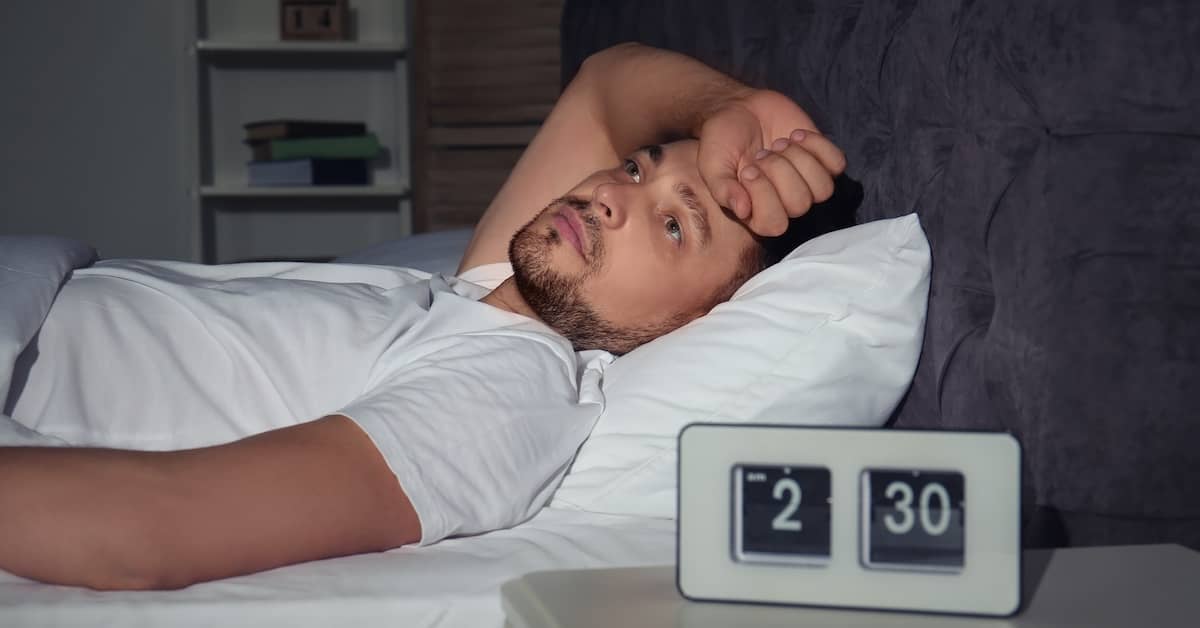
Perhaps most surprising is the definition of “interrupted sleep” used by researchers in this study. According to them, interrupted sleep doesn't have to involve consciously waking up a number of times during the night as you might expect. What they define as a sleep interruption can happen without the victim even being aware of it. In fact, if you wake up tired and exhausted in the morning, this may well apply to you.
Duration of sleep, either too short or too long, has already been linked to an increased risk of death. What hasn't been determined until now is whether there's an increased risk in another aspect of sleep called unconscious wakefulness or cortical arousal.
Unconscious wakefulness is triggered in response to something that potentially could be problematic, such as noise or light, temperature changes, limb movements, pain, or when breathing gets obstructed and the body has to adjust to reopen the upper airway, as occurs in people with sleep apnea.
While unconscious wakefulness is perfectly normal, it shouldn't happen too often. The number of times this occurs, and its duration while sleeping, is called the arousal burden. A high burden is particularly harmful.
Plays Havoc With Your Heart
Arousal burden is known to impact blood flow, heart rate and blood pressure but causes greater problems if the burden climbs too high and disrupts the circadian rhythm of the cardiovascular system.This disruption is linked to higher blood pressure and higher cholesterol, fat accumulation in the arteries, and insulin resistance. All factors that increase the risk of heart disease.
To see whether an excessive arousal burden is linked to mortality, researchers from the University of Adelaide, Australia and Maastricht University in the Netherlands designed a study to find out.
They looked at data on 8,001 men and women wearing sleep monitors. The information came from three studies where the average age of the participants was 64, 77 and 83. They followed these individuals for between six and 11 years.
After adjusting for factors that could affect the results, such as sleep duration, age, body mass index, smoking habits and medical history, the study uncovered some disturbing findings.
Heart Disease Deaths Double in Women
Women with an arousal burden greater than 6.5 percent, when compared to the general population, had almost double the risk of death from heart disease at 12.8 percent versus 6.7 percent, and a 50 percent higher risk of dying from any cause at 31.5 percent compared to 21 percent.Doing the same calculations for men but using an arousal burden of 8.5 percent, the figures were 13.4 percent versus 9.6 percent for risk of death from heart disease and 33.7 percent versus 28 percent for risk of death from any cause.
The findings show that women are at a far greater risk of death from an excess arousal burden than men. Associate professor of cardiology Dominik Linz explained, saying, "It is unclear why there is a difference between men and women in the associations, but there are some potential explanations. The triggers causing an arousal, or the body’s response to arousal, may differ in women compared to men. This may explain the relatively higher risk of cardiovascular death in women.
"Women and men may have different compensatory mechanisms for coping with the detrimental effects of arousal. Women may have a higher arousal threshold and so this may result in a higher trigger burden in women compared to men."
An accompanying editorial to the paper, published in the European Heart Journal in April, described the findings as "solid evidence supporting the importance of sleep quality for better cardiovascular health."
Unfortunately, arousal burden creeps up with aging. There's not much we can do about that, but there are a number of other areas we do have some control over.
How to Lower Arousal Burden
The first, if obese, is to lose weight. In addition to increasing arousal burden, obesity is also a major reason people suffer with sleep apnea, so losing weight can kill two birds with one stone.Since nine out of ten people with sleep apnea remain undiagnosed, bed partners should monitor each other for this condition. Those without a partner should suspect they may be affected if they awaken unrefreshed or with dry mouth or headache, fall asleep easily during the day, and have poor concentration. If so, medical attention should be sought.
Another way to lower the burden is to find ways to keep the bedroom cool, dark and quiet before sleep. Finally, for better sleep in general, practice good sleep hygiene by keeping to a regular sleep/wake schedule, and avoiding caffeine, alcohol, other stimulants, heavy meals, exercise and the use of electronic devices well before bedtime.
